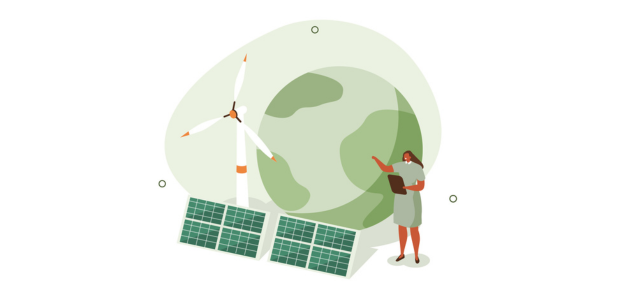
VTT launches new initiative to demonstrate energy-efficient technologies
VTT Technical Research Centre of Finland has unveiled a pioneering initiative aimed at transforming energy and resource consumption within the forestry and textile industries. The initiative, named "Energy First," introduces innovative low-carbon, water-efficient technologies with the potential to reduce water consumption by up to 90% and cut overall energy use by more than half.
The initiative comes at a time when global demand for fibre-based products is steadily increasing, driven by trends like the growth of e-commerce. According to Statista Market Insights and eMarketer, the demand for fibre-based packaging solutions is projected to rise by 5–10% annually. In response, the Energy First initiative aims to develop scalable, recyclable packaging solutions that are not only environmentally friendly but also capable of significantly reducing carbon footprints. A shift toward cellulose-based products is expected, especially in areas like non-wovens, where plastic is being phased out in favour of more sustainable materials for products such as napkins and wipes.
Backed by a budget of around 20 million euros over the next four years, the Energy First initiative encompasses multiple projects and will establish an open-access pilot line in Jyväskylä, Finland. This collaborative effort is focused on developing commercially viable alternatives for cardboard packaging, hygiene products, and non-woven fabrics. The research will test and refine new methods that emphasize sustainability and energy efficiency.
“This new initiative is a pivotal step towards more sustainable and competitive fibre-based products, and has the potential for great impact, thanks to more than 50 industrial partners. We are excited about the prospect of 1:1 commercial projects with companies, driving innovation in energy-efficient paperboard production,” says Atte Virtanen, Vice President of Biomaterial Processing and Products at VTT. “VTT’s purpose is to bring together people, business, science, and technology, paving the way to a sustainable future. The Energy First theme aims to do just that.”
The forestry sector faces mounting challenges, such as rising energy costs and limited fibrewood availability. The Energy First initiative seeks to overcome these hurdles by developing a manufacturing process that minimizes water and energy use. Early estimates from VTT’s research indicate that the new processes could reduce water consumption by up to 90% and energy consumption by 50%, significantly cutting carbon emissions as well.
In addition to being resource-efficient, products developed through this process are designed to be compatible with existing recycling systems. Fibre-based packaging produced in this way offers a sustainable alternative to conventional reusable packaging. With the EU’s upcoming packaging directive demanding both sustainable raw materials and production methods, the new solutions align perfectly with future regulatory requirements.
Beyond environmental benefits, the initiative also focuses on improving the competitiveness of fibre-based products by enhancing resource efficiency. For instance, lighter products can be manufactured, enabling more output from the same amount of wood, which optimizes material use and reduces waste.
Valmet, a key partner in the initiative, sees strong alignment with their R&D goals. "The Energy First Consortium project has several captivating work packages that align closely with Valmet’s current research and development objectives. Energy efficiency, investing in novel 3D fibre-based structures, and enhancing the strength of fiber products are core to our R&D focus," says Sampo Immonen, R&D Director at Valmet. "The program’s global collaboration network ensures that any intriguing project findings can be swiftly implemented in practice."
Anpap, another partner, highlights the potential for airlaid technology to drive sustainable solutions. "We feel that the Energy First project is one of the first steps in unlocking the full potential of airlaid technology in sustainable single-use and durable product categories," says Tuukka Vihtakari, CTO of Anpap. "Compared to wetlaid processes, airlaid web forming is flexible and consumes dramatically less natural resources like water, reducing the environmental impact of manufacturing while meeting consumer needs."
The initiative is funded by the EU, the European Regional Development Fund (ERDF), VTT, and collaborating companies. The consortium is also actively involved in additional EU projects, such as the EU SteamDry project, which has a total budget of 9.84 million euros over 3.5 years. VTT plans to continue driving innovation through ongoing projects and partnerships with industry players.

